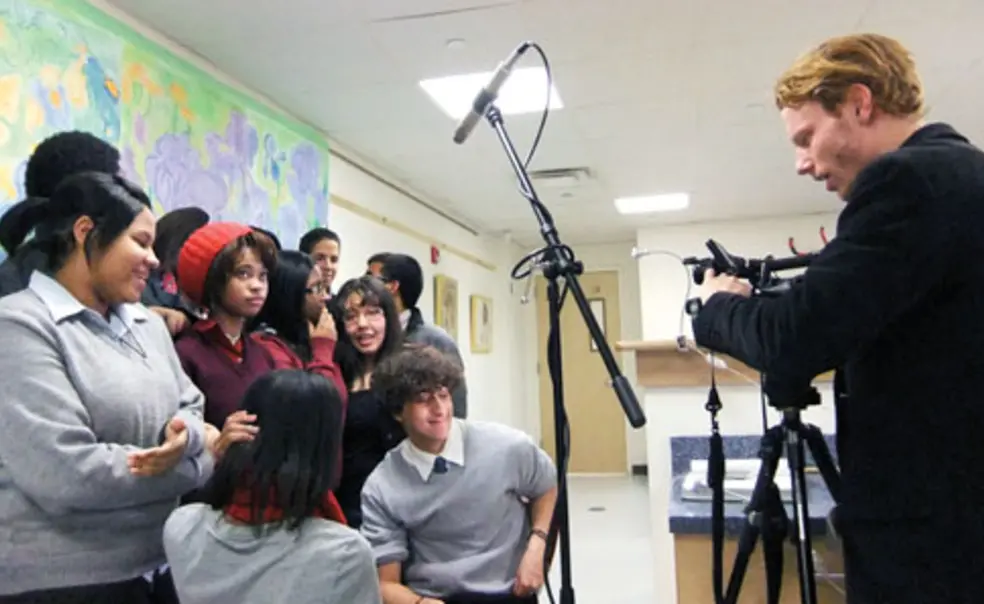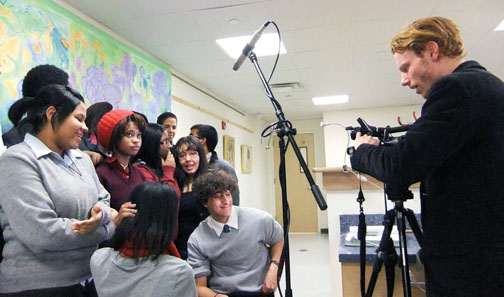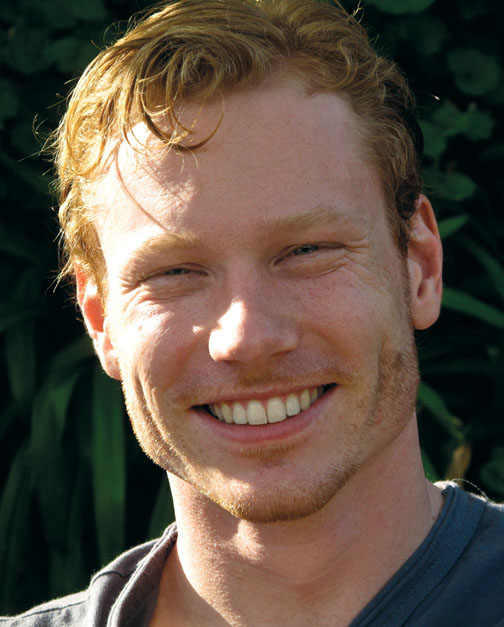Helping young people make music
Christoph Geiseler ’04’s nonprofit sends volunteers into underserved communities
On Friday afternoons, instead of doing what they used to do — go home and hang out — a dozen teenagers stay after school at Cristo Rey High School in Harlem, making music.
They are part of a program designed by Modern Improvisational Music Appreciation (MIMA), a nonprofit organization headed by Christoph Geiseler ’04 that grew out of a Princeton student group founded 10 years ago to stage improvisational music concerts on campus. When he graduated, Geiseler expanded the group’s role to send college-age jazz musicians into low-income communities to provide free music lessons.
Low-income children often lack the access to arts and music education that’s available in wealthier neighborhoods, says Geiseler. “Music can act as a remedy by inspiring the imagination of students, which excites them about learning ... and empowers them.”
To mark its 10th anniversary, MIMA and Princeton’s MIMA student group are organizing a conference on campus Oct. 10–16 at which they expect to train up to 50 Princeton students to be volunteer teachers and musicians in the nonprofit’s programs. A symposium Oct. 16 is scheduled to feature discussions about the role of improvisation in music education, social entrepreneurship, and public diplomacy; a performance by the Harlem students; and a keynote speech by musician Gilberto Gil, a former culture minister of Brazil. Several Princeton faculty members and alumni will participate.
Today, MIMA programs operate in the United States and abroad. For several years, Geiseler and Princeton jazz students worked with an after-school program — now run through the Student Volunteers Council — at a Trenton church, teaching children improvisational techniques and songwriting. The Cristo Rey High School program has been running since 2008; MIMA is now analyzing the students’ grades to find out whether their participation has improved their academic performance. Geiseler believes the program “started engaging them with other students [and] gave them more confidence.”
Elsewhere, in Spain, Cyprus, England, Argentina, and Brazil, volunteers lead songwriting workshops for disadvantaged teens and young adults and leadership-training workshops for music educators. In the songwriting workshops, participants learn traditional music skills such as rhythm, pitch, and melody, and work with others in the group to make music using percussion and other instruments, along with their voices. By the end of the classes, they create a song and, with the help of MIMA instructors, produce a music video.
“We at MIMA are convinced that you can come together with music,” said Geiseler. In Madrid in 2007, immigrants from sub-Saharan Africa, many of whom did not speak Spanish, were paired with Madrid natives. A workshop in Bristol, England, in April, brought together high school students from different ethnic backgrounds, providing a model to the high school music teacher to continue cross-cultural dialogue in the community. “These young people have grown in confidence, self-esteem, and musical and linguistic skills,” a local official said in a press release. In December, the U.S. State Department is sponsoring Geiseler, MIMA vice president Jonathan Barnes ’03, and other participants to run songwriting and leadership-training workshops in a poor neighborhood in El Salvador.














No responses yet